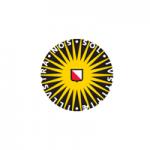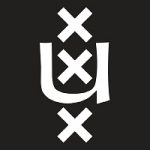项目介绍
Are you interested in how social collectives and political communities are brought together by firearms? Are you particularly interested in how these communities (re)produce power structures through their everyday practices? Would you like to experiment with multisensorial methods? Do you have a background in cultural anthropology or a related discipline and ethnographic research experience in Brazil, South Africa or Germany? If you would like to be part of a dynamic team carrying out research on communities of arms, one of these positions may be right for you.
Your job
ARMIES isa five-year project supported by a European Research Council (ERC) Starting Grant. The project aims to establish a new research agenda that centralises the firearm as a sensational actant that shapes everyday practices and relations, creates divergent communities, and (re)produces power structures within local and global spheres. The project centres around an ethnographic analysis of the everyday deployment of firearms and their societal impact. It examines and compares the various ways firearms produce communities and focuses on groups that are overlooked in the field of gun studies, such as gun owners’ associations and hunting clubs. ARMIES hypothesises that these communities are disruptive and transformative ones that exert tremendous power.
The project members are guided by the following research question: ‘How do firearms produce communities, how do these communities relate to one another, and what is their societal impact?’ This question will be answered through a comparative and multiscalar analysis of such communities and their members in Brazil, Germany, and South Africa, and global communities, such as international disarmament organisations. Due to the highly embodied, sensational, and affective nature of firearms, ARMIES will use and develop a multisensorial ethnographic approach (and toolkit) that comprises ethnographic methods that explicitly target the senses.
We seek three PhD candidates who have the necessary research experience and language skills to conduct one of the subprojects in Brazil, South Africa and Germany.
You will be part of team comprising three PhD candidates and the principal investigator (PI). The three PhD candidates will focus specifically on ‘communities of arms’ in the respective locations (Brazil, Germany, and South Africa). The PI will focus on international communities of arms and be responsible for conducting the comparative analysis of the different research sites. Based on an ethos of team ethnography, the team members will collaborate on addressing larger theoretical questions, developing a multisensorial toolkit, and organising academic events. The entire team is expected to reside in the Netherlands and work from Utrecht for the duration of project, except for the fieldwork periods.
Throughout this project, you will be well guided and supported by your supervisors. Your primary promotor is Dr Tessa Diphoorn external link, the PI of this project, and the co-promotors of each respective sub-project are Dr. Marlene Schäfers external link (sub-project Germany), Dr Willy Sier external link (sub-project South Africa), and Dr Martijn Oosterbaan external link (sub-project Brazil).
Your qualities
We are looking for motivated, collaborative, and flexible team members who are also able to work independently and contribute to the broader team project. Besides that, you meet the following requirements:
- an MA degree in anthropology or a related discipline; preferably affinity with political anthropology;
- demonstrable relevant experience with ethnographic research, ideally in one of the locations (Brazil, Germany or South Africa);
- experience with multimodal anthropological methods (visual, sensorial, etc.) is appreciated;
- curiosity towards methodology and willing to experiment with new methods;
- well-developed analytical and writing skills;
- excellent verbal and written communication skills in English and one of the languages necessary to conduct the case study, such as Portuguese and German.
Note: If you do not meet the requirements, we encourage you not to apply.
Our offer
We offer:
- a position for one year – after a positive evaluation, it will be extended for three more years;
- a working week of 38 hours and a gross monthly salary between €2,872 in the first year to €3,670 in the fourth year in case of full-time employment (salary scale P under the Collective Labour Agreement for Dutch Universities (CAO NU));
- 8% holiday pay and 8.3% year-end bonus;
- a pension scheme, partially paid parental leave and flexible terms of employment based on the CAO NU.
In addition to the terms of employment external link laid down in the CAO NU, Utrecht University has a number of schemes and facilities of its own for employees. This includes schemes facilitating professional development external link, leave schemes and schemes for sports and cultural activities external link, as well as discounts on software and other IT products. We also offer access to additional employee benefits through our Terms of Employment Options Model. In this way, we encourage our employees to continue to invest in their growth. For more information, please visit Working at Utrecht University external link.
About us
A better future for everyone. This ambition motivates our scientists in executing their leading research and inspiring teaching. At Utrecht University external link, the various disciplines collaborate intensively towards major strategic themes external link. Our focus is on Dynamics of Youth, Institutions for Open Societies, Life Sciences and Pathways to Sustainability. Sharing science, shaping tomorrow external link.
The Faculty of Social and Behavioural Sciences external link is one of the leading faculties in Europe providing research and academic teaching in cultural anthropology, educational sciences, interdisciplinary social science, pedagogical sciences, psychology, and sociology. Almost 7,000 students are enrolled in a broad range of undergraduate external link and graduate external link programmes. The Faculty of Social and Behavioural Sciences has some 1,100 faculty and staff members, all providing their individual contribution to the training and education of young talent and to the research into and finding solutions for scientific and societal issues.
You will be based at the department of Cultural Anthropology external link. The project will be in the department’s Sovereignty and Social Contestation Research Programme external link. The research programme addresses the interaction between power, authority, and legitimacy, which it seeks to connect with social movements, protest, and conflict.
More information
For more information, please contact Evan Blake external link at e.blake@uu.nl.
Please note that international candidates that need a visa/work permit for the Netherlands require at least four months processing time after selection and acceptance. Our International Service Desk external link (ISD) can answer your questions about living in the Netherlands as international staff external link. Finding appropriate housing in or near Utrecht is your own responsibility, but the ISD may be able to advise you therewith. In case of general questions about working and living in The Netherlands, please consult the Dutch Mobility Portal external link.
Candidates for this vacancy will be recruited by Utrecht University.
Apply now
As Utrecht University, we want to be a home external link for everyone. We value staff with diverse backgrounds, perspectives and identities, including cultural, religious or ethnic background, gender, sexual orientation, disability or age. We strive to create a safe and inclusive environment in which everyone can flourish and contribute.
To apply, please send the following documentation via the ‘apply now’ button:
- your motivation letter;
- your CV, with two references;
- a brief research idea (max. 1,000 words). In this research idea you should explain how you would design and develop one of the case studies, considering the overall project description, as well as your own expertise, experience, and intellectual interests. For the research idea, we expect you to consult the overall project description. You may obtain a copy by writing to our project manager, Evan Blake, at e.blake@uu.nl.
Interviews will take place in the second week of December. Our preferred start date is 1 April 2025 with some flexibility for international candidates who will require visas.
The application deadline is 15 November 2024.
联系方式
电话: +31 (0)30 253 35 50相关项目推荐
KD博士实时收录全球顶尖院校的博士项目,总有一个项目等着你!





